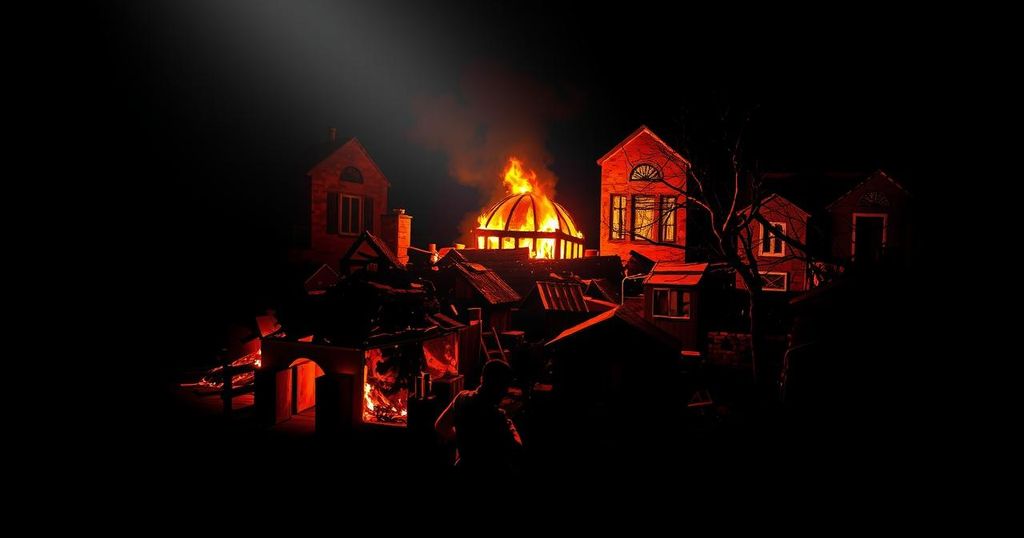Political analyst Bechara Khairallah has denounced the optimism around a ceasefire between Israel and Lebanon as artificially constructed, citing Hezbollah’s military power and Iran’s concerns as primary obstacles. He questions the feasibility of any agreement occurring before the inauguration of President-elect Donald Trump, emphasizing the complexities that hinder negotiations.
In a recent interview with the Saudi news outlet Al-Hadath, political analyst Bechara Khairallah characterized the ongoing ceasefire initiatives between Israel and Lebanon as unrealistic and expressed skepticism regarding any imminent agreement. He explained that the prevailing optimism is a manufactured sentiment intended to mislead the public into believing a resolution is close, especially in light of the transition to President-elect Donald Trump on January 20. Khairallah emphasized that Prime Minister Netanyahu is unlikely to allow outgoing President Biden to achieve any significant diplomatic victory before his term concludes.
During the discussion, Khairallah identified Hezbollah as a significant obstacle to any potential settlement in Lebanon, citing the group’s military independence and political authority as major challenges. He asserted that genuine stabilization in Lebanon would necessitate the disarmament of Hezbollah—a condition that Iran is unlikely to accept. Moreover, he expressed concern that an agreement cannot be realized as long as Hezbollah wields military power in the region.
Khairallah further noted that the implications of a ceasefire are concerning to Iran, which fears that it would facilitate possible Israeli attacks on Iranian facilities. He articulated, “The Iranians don’t want to see a ceasefire that ends the war because they know it will pave the way for Israeli progress toward those strategic objectives.” He concluded that despite the discussions around a potential settlement, an agreement remains distant.
The complexity of the Israel-Lebanon relationship is influenced by multiple actors, including regional powers such as Iran and non-state groups like Hezbollah. Previous conflicts within this volatile region have shaped the current geopolitical landscape, making any ceasefire or agreement particularly challenging to achieve. Analysts often cite the intricate balance of military power, political ambitions, and external influences as critical factors affecting peace efforts.
Bechara Khairallah’s analysis reveals a persuasive rationale behind the current state of affairs in the Israel-Lebanon context. His assertion that optimism regarding imminent agreements is unfounded highlights the entrenched challenges posed by Hezbollah and the geopolitical dynamics at play. Given Iran’s apprehensions and Hezbollah’s military capabilities, it appears that meaningful progress toward a ceasefire in Lebanon remains a considerable distance away.
Original Source: www.jpost.com






